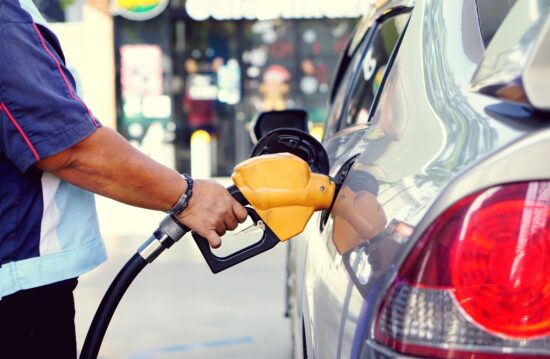In an industry as competitive as the fuel and convenience sector, standing out often requires thinking beyond just offering the lowest prices or the most convenient locations. Gas stations today must position themselves as more than pit stops—they need to be community hubs. Nick Kambitsis of Raceway Petroleum emphasizes that by organizing and participating in community events, gas stations can cultivate deeper connections with their customers, fostering brand loyalty and elevating their reputation as neighborhood staples.
The Importance of Brand Loyalty in the Gas Station Industry
Brand loyalty is critical for gas stations because of the recurring nature of the services they provide. Drivers regularly need to refuel, and convenience store purchases often accompany these visits. However, price fluctuations and abundant choices make it challenging to create lasting customer relationships.
A strong sense of community can be the differentiating factor that draws people to one station over another. When a gas station becomes synonymous with positive local experiences, it builds emotional connections with customers that transcend price sensitivity. Community events provide an ideal platform for forging those connections.
Why Community Events Work
Community events create memorable interactions that align with a customer’s values, needs, or lifestyle. These interactions can transform a gas station’s image from a mere service provider to an active contributor to the community. Here’s how:
- Humanizing the Brand: Community events allow gas stations to show a personal, caring side that customers wouldn’t necessarily experience at the pump. Engaging with local organizations or hosting events shows that the business values more than just transactions.
- Increasing Visibility: Events bring people together, often in larger numbers than typical daily traffic. A well-executed event can introduce a station to new customers and reintroduce it to lapsed ones.
- Emotional Connection: Attendees are more likely to remember brands associated with positive memories. A gas station that sponsors a fun event for families, for example, might be the first choice for parents when it’s time to refuel or grab snacks.
- Differentiation: Many gas stations compete on price, but few prioritize the customer experience beyond the forecourt. A commitment to hosting or sponsoring local events sets a station apart.
Ideas for Community Events
When considering community events, it’s essential to align the activity with the brand and the audience. Below are some examples of events that gas stations can host or sponsor:
1. Family Days
Host a family-friendly event with games, food trucks, and live music at the gas station. Offering free car washes or discounts on snacks during the event adds a practical appeal. Activities like bounce houses, face painting, or raffles for gas cards ensure engagement.
2. Fundraising Events
Collaborate with local schools, non-profits, or sports teams to host charity fundraisers. For example, donate a percentage of gas sales on a specific day to a local cause. Customers feel good about their purchases, and the gas station gains goodwill.
3. Car Shows
Partner with car enthusiasts to host a local car show. This type of event is an excellent fit for gas stations as it draws an audience with a natural interest in vehicles and fuel. Add attractions like live music, food vendors, or awards for “Best in Show.”
4. Seasonal Celebrations
Tie events to holidays or seasonal themes. A winter event could feature free hot chocolate and a toy drive, while a summer block party might include BBQ, games, and discounts on cold beverages.
5. Educational Workshops
Offer sessions on vehicle maintenance, road trip planning, or eco-friendly driving tips. This positions the gas station as a resource for the community, adding a layer of expertise to its brand identity.
Promoting Community Events
To maximize the impact of these events, promotion is key. Here are steps gas stations can take to ensure high attendance and engagement:
- Leverage Social Media: Use platforms like Facebook, Instagram, and local community groups to promote the event. Share behind-the-scenes preparations, highlight key attractions, and encourage followers to RSVP.
- Collaborate with Local Media: Partner with local radio stations, newspapers, or bloggers to spread the word. Press releases and event coverage can draw attention from wider audiences.
- Involve the Community: Encourage local businesses to participate as vendors or sponsors. This builds relationships and expands the event’s reach through their promotional efforts.
- Advertise On-Site: Place signage at the gas station to inform regular customers of the upcoming event. Use receipts or digital screens at the pump to share details.
- Engage Attendees Post-Event: Follow up with attendees through social media or email newsletters. Share event photos and thank the community for their participation.
Measuring Success
After hosting an event, it’s important to assess its impact. Metrics to consider include:
- Customer Traffic: Did the event increase foot traffic to the station or convenience store?
- Sales Data: Was there a noticeable boost in sales during or after the event?
- Engagement: How many people attended? Did they interact with the brand on social media?
- Feedback: Gather attendee opinions through surveys to learn what worked and what could improve.
These insights will help refine future events, ensuring continued success.
Building Loyalty Through Experiences
Community events are a powerful tool for gas stations looking to strengthen their brand loyalty. They humanize the business, foster emotional connections, and offer opportunities for meaningful engagement with customers. By becoming a hub of activity and goodwill, gas stations can position themselves as integral parts of their communities, ensuring customers return time and time again—not just for fuel, but for the experience.
